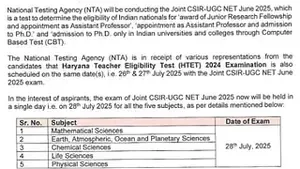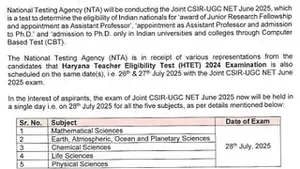Bharat Bandh Today: 10 Things to Know About Nationwide Strike
timesnownews | July 9, 2025 2:31 PM CST

Over 25 crore workers across banking, insurance, mining, construction and other sectors are expected to join a nationwide strike today. Called by a joint platform of 10 central trade unions, along with farmers' and rural workers' organisations. The protest is aimed at opposing what the groups allege are "pro-corporate and anti-worker" policies implemented by the government.
The unions have claimed that government departments were increasingly hiring retired personnel instead of young professionals. This trend, they argue, is harmful in a country where 65 per cent of the population is under 35, and unemployment is highest among those aged 20 to 25.
Here are 10 Things to Know About Bharat Bandh:
- The unions expect more than 25 crore people across various sectors to participate in the Bharat bandh. This includes workers from both organised and unorganised sectors, with strong participation expected from farmers and rural workers as well.
- The nationwide strike is being led by INTUC, AITUC, CITU, HMS, SEWA, AIUTUC, AICCTU, LPF, UTUC, and TUCC.
- Political parties like the RJD have also extended support to the Bandh. This morning, RJD's students' wing blocked the train tracks at Jehanabad railway station to support 'Bharat Bandh'.
- The unions are especially critical of the new labour codes, which they claim will weaken workers' rights, extend working hours, and make it harder to form unions or go on strike.
- They are also demanding government jobs, an increase in MGNREGA wages and workdays, and similar employment schemes for urban areas.
- The unions submitted a 17-point demand list to the Labour Minister, but they say their concerns have not been taken up by the government.
- The bandh is expected to have minimal impact on the banking sector and educational institutions.
- However, public transport services may be affected in many regions. This could lead to delays for commuters, students, and office-goers.
- This is not the first time the trade unions have organised such a protest.
- Similar agitations were held on November 26, 2020, March 28–29, 2022, and February 16, 2024, focusing on issues like privatisation of public sector units, job insecurity, and the casualisation of the workforce.
READ NEXT
-
CSIR UGC NET June 2025 Exam Rescheduled Due To HTET 2024 Date Clash; Check New Dates Here

-
CSIR UGC NET June 2025 Exam Rescheduled Due To HTET 2024 Date Clash; Check New Dates Here

-
RRB NTPC UG: Application status of Railway NTPC UG recruitment released, check this way whether the form is accepted or rejected..

-
RRB NTPC UG: Application status of Railway NTPC UG recruitment released, check this way whether the form is accepted or rejected..

-
Concerns Rise Among Landless Farmers in Dharapur Over Land Rights Promises
